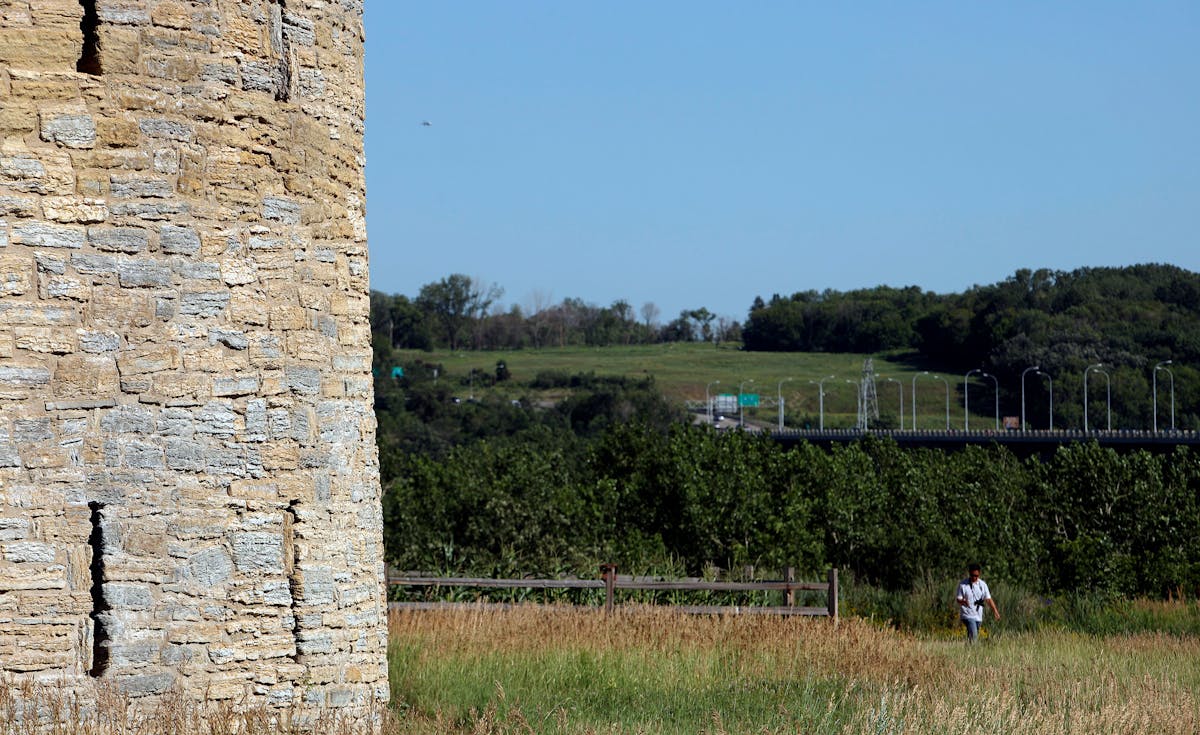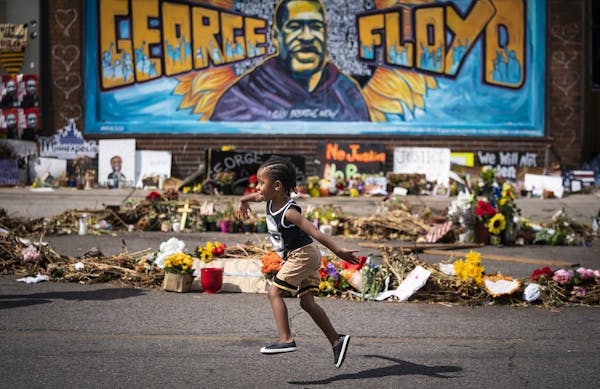Now that Lake Calhoun's name has been changed, what about other Minnesota place names with racist roots?
Listen and subscribe to our podcast: Via Apple Podcasts | Spotify | Stitcher
Driving down Pierce Butler Route several times a week, Kay Hatlestad wondered how the St. Paul road came to share the name of one of America's largest slaveholders.
She did not think the late South Carolina senator should be honored, given that he inserted a clause in the Constitution requiring that enslaved people who escaped to another state be returned to their masters.
So Hatlestad turned to Curious Minnesota, our community-driven reporting project fueled by questions from readers, to ask: "Why do we have a street named after Pierce Butler? And why haven't we changed it?"
Her inquiry comes amid a national reckoning over locations named for historical figures with racist legacies. The Minnesota Supreme Court ruled in May that the state had the authority to rename Lake Calhoun — a tribute to John Calhoun, a champion of slavery — to its original Dakota name Bde Maka Ska.
In the case of Butler, however, the road is actually named for the first Minnesotan to serve on the U.S. Supreme Court. That Pierce Butler, a justice from 1923 to 1939, was born in St. Paul in 1866 — 44 years after the southern slaveholder died.
"I had no idea," Hatlestad said, "That does kind of raise the question: What can we do to make it clear which Pierce Butler we're commemorating?"
Reader Michaela Day also wrote in to ask, "Why are war criminals and proponents of genocide like Ramsey and Sibley still honored in Minnesota?"
Alexander Ramsey was governor of Minnesota in the early 1860s, and the first governor to volunteer troops to fight for the Union during the Civil War. But he also appointed his predecessor, Henry Sibley, to command troops in the U.S.-Dakota War.
"The Sioux Indians of Minnesota must be exterminated or driven forever beyond the borders of Minnesota," Ramsey declared. Sibley created the military commission that in 1862 sentenced 303 Dakota men to death — 38 were hanged in Mankato.
"The reason we have so many places named after Ramsey and Sibley has to do with their role as founders of the territory and the state of Minnesota, their influence as political leaders and businessmen, and the fact that they were pretty roundly praised by contemporaries in the 1800s and by historians through much of the twentieth century," said Bill Convery, director of research at the Minnesota Historical Society.
He noted that a historian in the 1920s referred to each of them as the George Washington of Minnesota, and an obituary for Sibley in 1891 described him as a savior of the Northwest from an Indian massacre. Historians at the time crafted the story of the founding and settlement of Minnesota as one of the triumph of white civilization, Convery said, and both men were central actors in that victory.
But dissenting voices gained traction after the civil rights movement, he added.
"As time went on, that role in the Dakota War has become a stain, not a cause for celebration," Convery said.
In 2017, students at Ramsey Middle School in Minneapolis successfully campaigned to change its name to Justice Page Middle School, after Alan Page, the state's first Black Supreme Court justice.
In Mankato, Megan Schnitker has helped bring attention to the name of Sibley Park, near the site of the 1862 mass hanging. She wants all sides of history presented.
"He's portrayed as this amazing war hero, but he did some pretty terrible things," said Schnitker, who heads the Mahkato Revitalization Project to revitalize Indigenous culture. "I understand war is war, but at the same time the people he conquered are still here and they lost relatives that they can name."
---
If you'd like to submit a Curious Minnesota question, fill out the form below:
Read more Curious Minnesota stories:
If there's a 'Greater Minnesota,' where is 'Lesser Minnesota'?
Does Minnesota or some other state have the best claim to Paul Bunyan?
Why is Minnesota more liberal than its neighboring states?
When you flush a toilet in the Twin Cities, where does everything go?
Is Minnesota actually more German than Scandinavian?
Why are felons stripped of voting rights, and what other rights do they lose?
How did Minnesota's early settlers make it through the dark, cold winters?
Why do we have water towers and what do they do?


